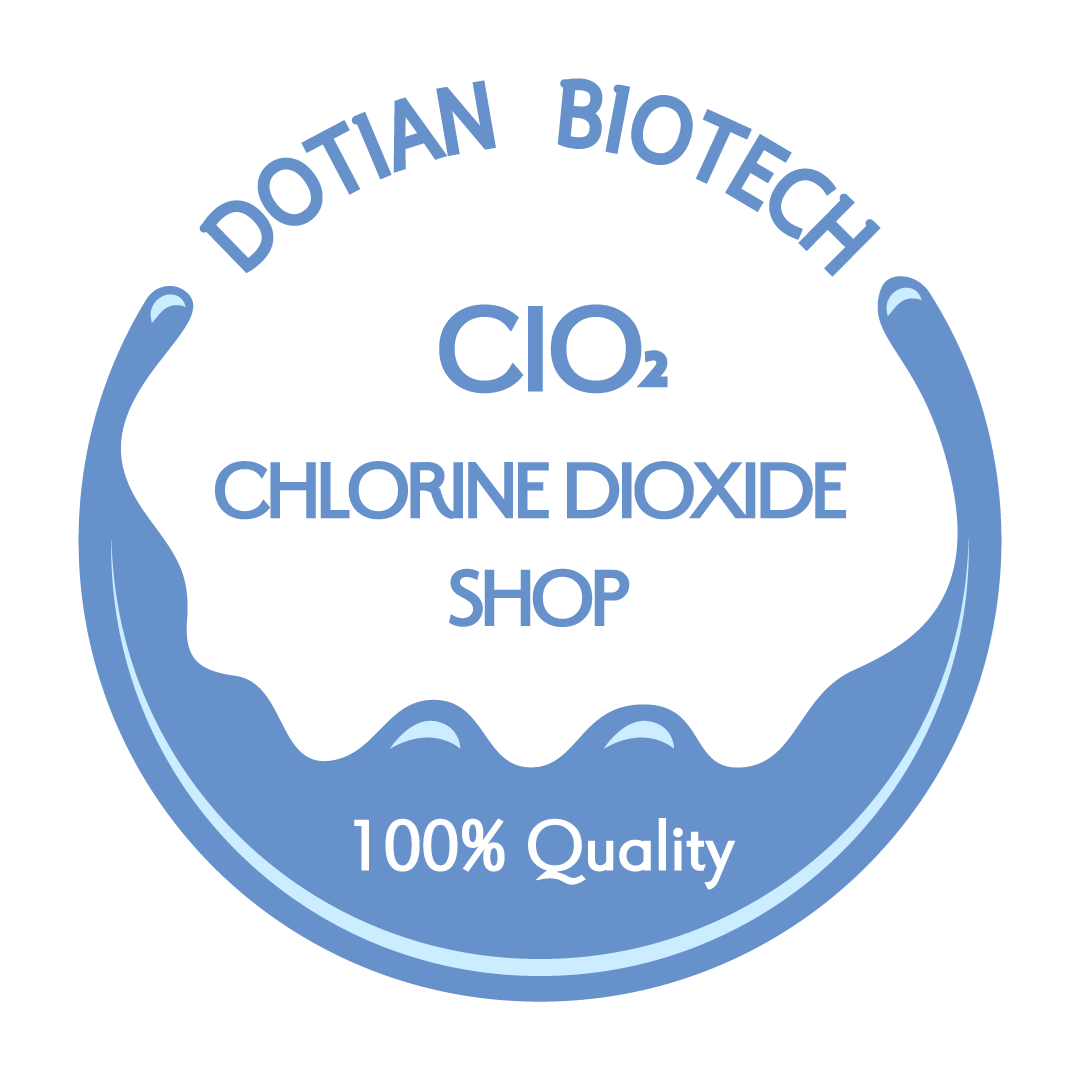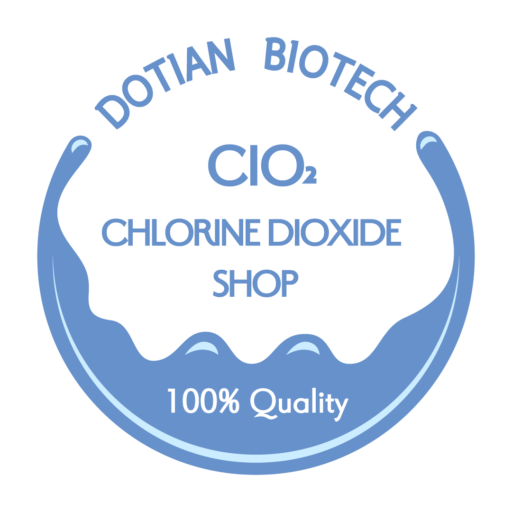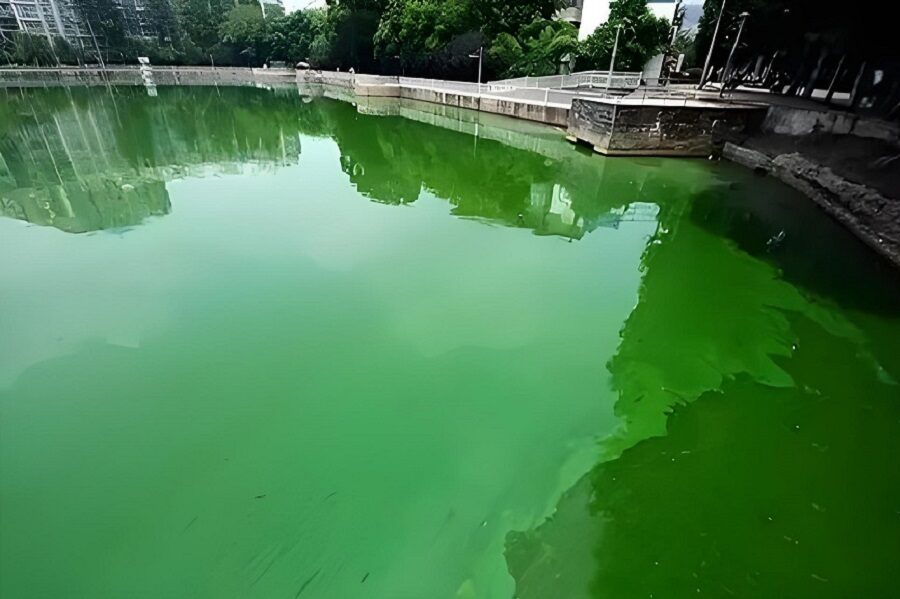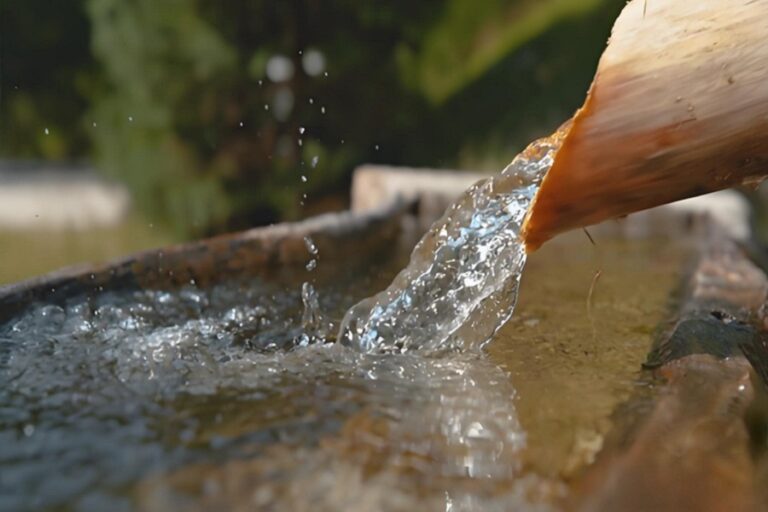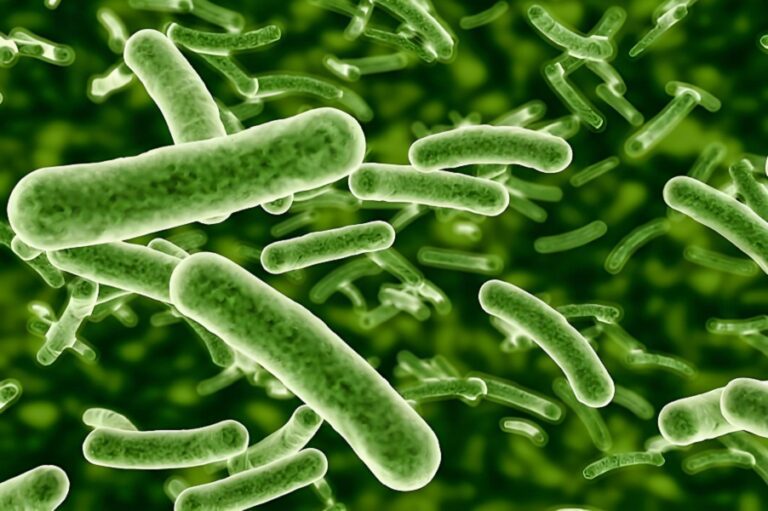Key words: Water Treatment, Water System, Algae Control
Algae growth is a pervasive challenge in water systems, affecting everything from small garden ponds to vast industrial reservoirs. While algae are a natural component of aquatic ecosystems, their unchecked proliferation can disrupt water quality, ecological balance, and system efficiency. Addressing this issue demands solutions that are not only effective but also environmentally conscious. Chlorine Dioxide (ClO₂) has emerged as an advanced, versatile solution that addresses algae control while also offering numerous advantages for water treatment systems.
Understanding Algae Control: The Core Challenge in Water Systems
Algae thrive in environments rich in nutrients, light, and warmth. These conditions can lead to algal blooms—rapid increases in algae population—that pose multiple risks:
- Oxygen Depletion: Algal blooms consume large amounts of dissolved oxygen, often leading to hypoxia or even anoxic conditions, threatening fish and other aquatic life.
- Toxin Release: Certain types of algae, particularly cyanobacteria, release harmful toxins into the water, compromising both human and aquatic health.
- Operational Disruptions: Algae can clog pipes, filters, and cooling systems, reducing the efficiency of industrial and municipal water systems. This often results in increased maintenance costs and operational downtime.
- Aesthetic and Recreational Impacts: Algal blooms disfigure water bodies, turning them murky and green, negatively affecting their use for recreation and reducing their visual appeal.
With the increasing complexity of water systems, algae control must be approached with both efficacy and sustainability in mind. Chlorine Dioxide offers a potent solution that tackles these concerns at multiple levels.
How Chlorine Dioxide Targets Algae: A Technical Breakdown
Chlorine Dioxide stands apart from traditional algae control methods due to its powerful oxidizing properties and targeted approach. Its multifaceted mechanism of action enables it to effectively manage algae across various water systems:
- Cell Wall Oxidation: ClO₂ penetrates and disrupts the cellular structure of algae, leading to cell death. Unlike chlorine, ClO₂ selectively reacts with organic material in a way that limits the formation of harmful by-products, such as trihalomethanes (THMs).
- Inhibition of Photosynthesis: By penetrating algal cells, ClO₂ disrupts their photosynthetic processes. This inhibition stops algae from generating energy, effectively halting their reproduction and growth.
- Biofilm Prevention: Algae often thrive in biofilms, dense layers of microorganisms that adhere to surfaces. ClO₂ prevents the formation of these biofilms, keeping pipes, filters, and surfaces free from organic build-up, which in turn reduces the risk of algae colonization.
- Residual Activity: ClO₂ remains active in water for extended periods, offering prolonged protection against algae regrowth. This makes it a cost-effective solution for continuous water treatment, reducing the need for frequent dosing.
Broad Applications of Chlorine Dioxide in Water Systems
The adaptability of Chlorine Dioxide across different water systems makes it a superior choice for a wide range of applications.
- Ornamental and Recreational Ponds:
In ornamental ponds and recreational water bodies, maintaining water clarity is a priority. ClO₂ effectively prevents the buildup of unsightly algae, helping preserve aesthetic quality without disturbing the natural ecosystem balance. - Drinking Water Reservoirs:
Algal blooms in drinking water reservoirs pose a serious risk to water quality. ClO₂’s ability to control algae at low concentrations ensures that drinking water remains clear, safe, and free from toxins, which is critical for public health. - Industrial Cooling and Water Treatment Systems:
In industrial applications, algae can block cooling towers and heat exchangers, reducing operational efficiency and increasing maintenance costs. ClO₂ effectively controls algae growth while minimizing corrosion, allowing for smoother operations with reduced system downtime. - Municipal Water Treatment Plants:
Municipal systems utilize ClO₂ to treat raw water sources, particularly in regions prone to algal blooms. The consistent application of ClO₂ helps ensure that treated water meets safety and quality standards, even during periods of heightened algal activity.
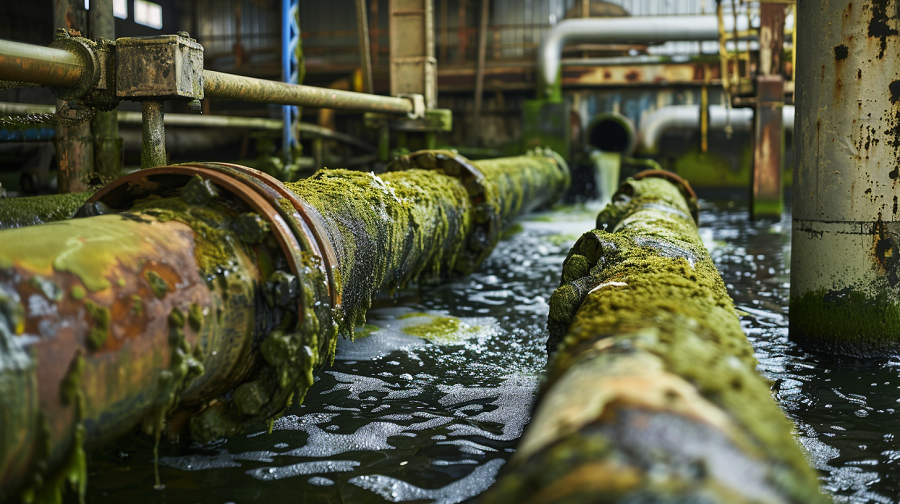
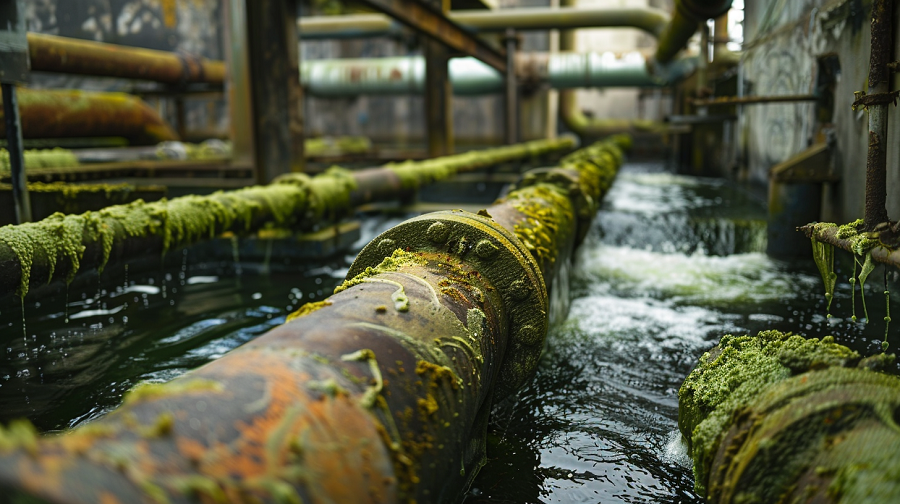
Environmental and Economic Benefits of Chlorine Dioxide
One of the standout qualities of Chlorine Dioxide is its environmental friendliness. Unlike traditional chlorine treatments, ClO₂ does not form harmful by-products that can contaminate water and harm aquatic life. Its selective reactivity ensures that only the harmful microorganisms are targeted, reducing the overall ecological impact.
From an economic perspective, Chlorine Dioxide is highly efficient. Its ability to function at lower concentrations while providing lasting effects reduces chemical consumption and operational costs. Its efficacy in preventing biofilm formation further contributes to reduced system maintenance and extended equipment lifespans, offering substantial long-term savings.
Chlorine Dioxide Generators: The Future of Efficient Algae Control
For those seeking a more practical and effective solution for algae control, Chlorine Dioxide generators—such as DOTIAN® chlorine dioxide effervescent tablets and powder—represent the future of water treatment. These generators are designed to produce ClO₂ on-site, ensuring consistent and controlled dosing. The tablet and powder forms are particularly convenient, allowing for easy storage, transportation, and application, making them ideal for both small-scale and large-scale projects.
The controlled release of ClO₂ from these generators enables precise management of algae levels, ensuring that the treatment is effective without the need for complex machinery or extensive chemical handling. This not only simplifies the algae control process but also ensures that water systems remain clean, safe, and operationally efficient.
Chlorine Dioxide is revolutionizing algae control by providing a solution that is both powerful and environmentally sustainable. Its effectiveness across a wide range of water systems, from small ponds to large industrial facilities, showcases its versatility. Beyond algae control, ClO₂ enhances water quality, optimizes system performance, and reduces operational costs, making it an indispensable tool for modern water management.
Through its innovative Chlorine Dioxide generators, such as DOTIAN®’s tablets and powder, these benefits are more accessible and practical than ever before, ensuring that every water system can harness the full potential of Chlorine Dioxide for a cleaner, safer, and more sustainable future. For more information, please contact us.
-
Chlorine Dioxide Tablets for Agriculture
-
Chlorine Dioxide Tablets for Brewery
-
Chlorine Dioxide Tablets for Cooling Tower
-
Chlorine Dioxide Tablets for Healthcare
-
Chlorine Dioxide Tablets For Horticulture
-
Chlorine Dioxide Tablets for Poultry 20g
-
Chlorine Dioxide Tablets For Water Treatment
-
Chlorine Dioxide Water Purification Tablets
-
Chlorine Powder for Disinfection
